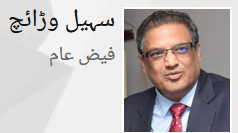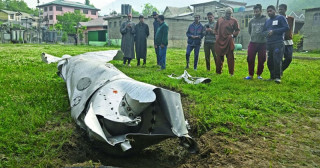Faiza
Moderator
Facebook Like & Share Photo Scams Dont Make Scammers Rich
We see these photos nearly every day. Like Me if you hate Cancer, 1 Share = 1 Prayer., or even Like this photo for a free iPad however these photos often exist for only one purpose. To make money.
Scammers work on the principle that a Facebook Page, Group or Event with many thousands of members is a valuable online commodity, because it gives a spammer a large audience.
Below we list some of the more common examples of content that use to accumulate Likes and Shares for financial gain.?
Click if you Hate Cancer
Share for a FREE iPad
Share-to-Donate
Share-to-Pray
Stop Sick Children Hoaxes from Spreading, Raise Awareness
Almost every day while surfing social media networks, especially Facebook, we come across a large number of scams and hoax messages.
All these scams and hoax messages are malicious, most of them being designed to harm the integrity of our computing systems, but there is one type of hoax that harms something much more than a computer. Were referring to a particular type of hoax that involves photographs of ill or disabled children in hospitals.
While most Facebook members rush to share these phony messages, presumably because Facebook, Google, or AOL donates an amount of money for each Share, few stop to think that not only no one donates a dime
In some instances, Facebook page owners even rely on these scams to gain fans, which makes it even worse.
What many dont know is that some of these children already passed away some years ago, the presence of these pictures causing a lot of grief and suffering to the parents and those who actually knew the ones featured in the photos.
There are a number of websites and blogs that try to raise awareness on these issues, teaching users how to identify and avoid them, but since their efforts havent paid off so far, some of them launched an awareness raising campaign.
You may wonder why Facebook would need to be pressured.
Mainly because while websites and blogs are doing a decent job informing people, the social media site responds too slowly when asked to remove these hoaxes and especially the pictures that accompany them.
until Facebook acts to address the issue, next time you see a hoax that features a disabled or sick child, refrain from sharing, linking or commenting on it. If we ignore these scams long enough, eventually they may disappear.
Also, make sure to report the pictures to Facebook by pressing the Report Photo button in the lower right corner.
http://news.softpedia.com/news/Stop-Sick-Children-Hoaxes-from-Spreading-Raise-Awareness-250801.shtml
I Spotted Facebook Spam. What Should I Do?
For More Information
For tips on identifying Facebook scams and ensuring your account is secure, please see Facebooks Help Center.
To find out more about scams, check out the new BBB Scam Stopper.
Facebook is not, nor will they ever be in the business of donating money to causes based on sharing content on the site. This is a fact, not a theory. But some people still fail to understand this. Even people who know that its probably a scam will sometimes share the status or photo anyway, simply using the what could it hurt excuse.
And this is how viral scams are spread. If people simply stopped sharing content from like and share, the problem would work itself out.
Sadly, this is probably not going to happen any time soon. Thats why we have to bring to your attention the latest hoax spreading across Facebook.
This one purports that Facebook is donating $1 to sick, starving children if you share a photo of them. This is simply not true.
Im not asking you to like this, but please do share because Facebook donates $1 for these sick children for every single share, says the image (via Hoax Slayer).

Sharing hoaxes are some of the oldest types of hoaxes on Facebook. One recent hoax status suggested that a teenage boy needed life-saving surgery after being shot by his stepfather. Of course, the story was complete BS and all that sharing it accomplished was polluting peoples news feed. But it was shared a lot.
Of course, sharing a status isn't as tempting as sharing a photo. Last month, a scam spread around Facebook that featured a doctored photo of Bill Gates holding a sign that said he would give $5,000 to everyone who shared the photo. The photo was shared hundreds of thousands of times before Facebook yanked it.
Stop, think, and remember that Facebook doesn't give out money based on shares. Nobody does. Just dont click that share button.
http://www.webpronews.com/no-youre-...ildren-by-sharing-that-facebook-photo-2013-03
Explaining The Reality of Fake Islamic Pics on Internet
http://tune.pk/video/108592/Explaining-The-Reality-of-Fake-Islamic-Pics-on-Internet
We see these photos nearly every day. Like Me if you hate Cancer, 1 Share = 1 Prayer., or even Like this photo for a free iPad however these photos often exist for only one purpose. To make money.
Scammers work on the principle that a Facebook Page, Group or Event with many thousands of members is a valuable online commodity, because it gives a spammer a large audience.
Below we list some of the more common examples of content that use to accumulate Likes and Shares for financial gain.?
Click if you Hate Cancer
Share for a FREE iPad
Share-to-Donate
Share-to-Pray
Stop Sick Children Hoaxes from Spreading, Raise Awareness
Almost every day while surfing social media networks, especially Facebook, we come across a large number of scams and hoax messages.
All these scams and hoax messages are malicious, most of them being designed to harm the integrity of our computing systems, but there is one type of hoax that harms something much more than a computer. Were referring to a particular type of hoax that involves photographs of ill or disabled children in hospitals.
While most Facebook members rush to share these phony messages, presumably because Facebook, Google, or AOL donates an amount of money for each Share, few stop to think that not only no one donates a dime
In some instances, Facebook page owners even rely on these scams to gain fans, which makes it even worse.
What many dont know is that some of these children already passed away some years ago, the presence of these pictures causing a lot of grief and suffering to the parents and those who actually knew the ones featured in the photos.
There are a number of websites and blogs that try to raise awareness on these issues, teaching users how to identify and avoid them, but since their efforts havent paid off so far, some of them launched an awareness raising campaign.
You may wonder why Facebook would need to be pressured.
Mainly because while websites and blogs are doing a decent job informing people, the social media site responds too slowly when asked to remove these hoaxes and especially the pictures that accompany them.
until Facebook acts to address the issue, next time you see a hoax that features a disabled or sick child, refrain from sharing, linking or commenting on it. If we ignore these scams long enough, eventually they may disappear.
Also, make sure to report the pictures to Facebook by pressing the Report Photo button in the lower right corner.
http://news.softpedia.com/news/Stop-Sick-Children-Hoaxes-from-Spreading-Raise-Awareness-250801.shtml
I Spotted Facebook Spam. What Should I Do?
- Dont share, like or comment on the images. That just perpetuates Facebook spam.
- Report spam to Facebook by following these instructions.
For More Information
For tips on identifying Facebook scams and ensuring your account is secure, please see Facebooks Help Center.
To find out more about scams, check out the new BBB Scam Stopper.
Facebook is not, nor will they ever be in the business of donating money to causes based on sharing content on the site. This is a fact, not a theory. But some people still fail to understand this. Even people who know that its probably a scam will sometimes share the status or photo anyway, simply using the what could it hurt excuse.
And this is how viral scams are spread. If people simply stopped sharing content from like and share, the problem would work itself out.
Sadly, this is probably not going to happen any time soon. Thats why we have to bring to your attention the latest hoax spreading across Facebook.
This one purports that Facebook is donating $1 to sick, starving children if you share a photo of them. This is simply not true.
Im not asking you to like this, but please do share because Facebook donates $1 for these sick children for every single share, says the image (via Hoax Slayer).

Sharing hoaxes are some of the oldest types of hoaxes on Facebook. One recent hoax status suggested that a teenage boy needed life-saving surgery after being shot by his stepfather. Of course, the story was complete BS and all that sharing it accomplished was polluting peoples news feed. But it was shared a lot.
Of course, sharing a status isn't as tempting as sharing a photo. Last month, a scam spread around Facebook that featured a doctored photo of Bill Gates holding a sign that said he would give $5,000 to everyone who shared the photo. The photo was shared hundreds of thousands of times before Facebook yanked it.
Stop, think, and remember that Facebook doesn't give out money based on shares. Nobody does. Just dont click that share button.
http://www.webpronews.com/no-youre-...ildren-by-sharing-that-facebook-photo-2013-03
Explaining The Reality of Fake Islamic Pics on Internet
http://tune.pk/video/108592/Explaining-The-Reality-of-Fake-Islamic-Pics-on-Internet




































